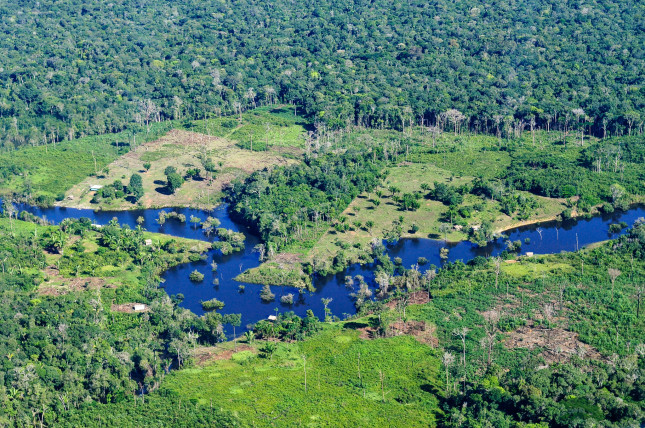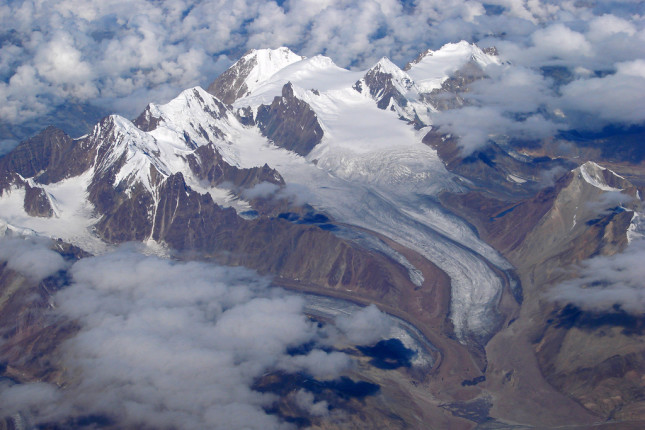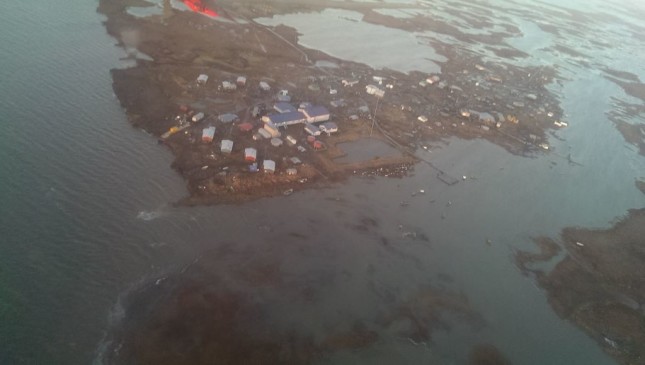-
Anticipatory Intelligence: Climate Change in the National Intelligence Strategy
›January 29, 2019 // By Marisol Maddox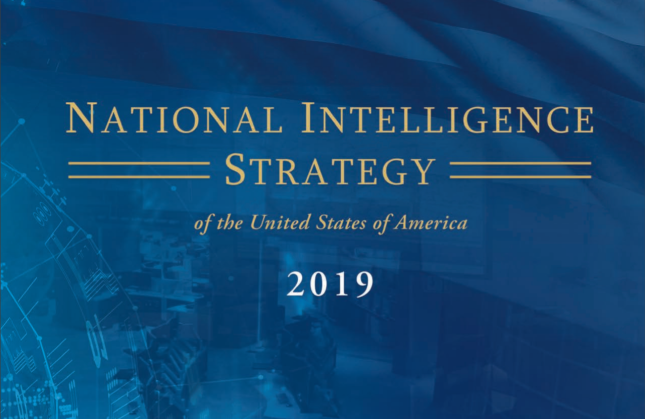
On January 22, Director of National Intelligence (DNI) Daniel R. Coats released the National Intelligence Strategy (NIS) for 2019, which represents a departure from the last such strategy. While the previous 2014 National Intelligence Strategy specifically noted that food, water, and energy resource insecurity contribute to instability, the 2019 NIS does not mention these concerns beyond a single reference to climate change and resource scarcity as “pressure points.”
-
China’s Demand for Raw Materials Harms Communities Around the World
›
The Solomon Islands’ “commercially available forests will be gone in about 15 years” due to deforestation, said Lela Stanley, a Policy Advisor for Global Witness’ Asia Forests team at the Wilson Center’s recent China Environment Forum event. It looks like they are logging about 20 times faster than they should for the logging to be sustainable, she added. While timber from the islands is exported to China—the world’s largest importer and consumer of timber products—local residents and communities bear the brunt of the environmental cost of lost ecosystem services suffered at the hands of the timber trade. And they aren’t alone. China’s insatiable demand for raw materials and its harmful resource extraction practices wreak havoc on the ecosystems of its many producer countries.
-
Ken Conca on Transboundary Water Basin Management
›Friday Podcasts // Water Stories (Podcast Series) // January 18, 2019 // By Linsey Edmunds & Truett Sparkman “When we start talking about water in the context of security, we’re immediately drawn to a conversation about conflict. And that’s often framed in terms of scarcity of water and a real zero-sum game around water, where scarcity begets grievances, which beget instability and conflict,” says Ken Conca, Professor at American University’s School of International Service, in this week’s Water Stories podcast. Of the world’s 276 transboundary water basins, fewer than half are governed by an agreement or accord that allocates use of the shared water between countries—and less than a quarter of these accords include all the riparian states in a basin.
“When we start talking about water in the context of security, we’re immediately drawn to a conversation about conflict. And that’s often framed in terms of scarcity of water and a real zero-sum game around water, where scarcity begets grievances, which beget instability and conflict,” says Ken Conca, Professor at American University’s School of International Service, in this week’s Water Stories podcast. Of the world’s 276 transboundary water basins, fewer than half are governed by an agreement or accord that allocates use of the shared water between countries—and less than a quarter of these accords include all the riparian states in a basin. -
Groundwater Scarcity, Pollution Set India on Perilous Course
›
Doula Village lies 55 kilometers (34 miles) northeast of New Delhi on a flat expanse of Uttar Pradesh farmland close to the Hindon River. Until the 1980s Doula Village’s residents, then numbering 7,000, and its farmers and grain merchants, thrived on land that yielded ample harvests of rice, millet, and mung beans. The bounty was irrigated with clean water transported directly from the river, or with the sweet groundwater drawn from shallow wells 7 meters (23 feet) deep.
-
Doris Kaberia on Public-Private Partnerships and Holistic Approaches to Water Management in Kenya
› “You cannot separate water and health,” says Doris Kaberia in this week’s Water Stories podcast. “People need safe drinking water for them to be healthy.” Kaberia works with Millennium Water Alliance, a coalition of international NGOs working on water sanitation and hygiene around the world, where she manages a Kenyan water program.
“You cannot separate water and health,” says Doris Kaberia in this week’s Water Stories podcast. “People need safe drinking water for them to be healthy.” Kaberia works with Millennium Water Alliance, a coalition of international NGOs working on water sanitation and hygiene around the world, where she manages a Kenyan water program. -
Resource Nexus Approaches Can Inform Policy Choices
›Guest Contributor // January 8, 2019 // By Stacy D. VanDeveer, Raimund Bleischwitz & Catalina Spataru
The unabated growth of natural resource consumption raises risks that we will outstrip the capacities of ecosystems and governance institutions. At the same time, to achieve important global goals related to poverty alleviation, public health, equity and economic development such as those embodied in the United Nations Sustainable Development Goals (SDGs), we will simultaneously need more resources and better management of natural resources everywhere.
-
Snow and Ice Melt Patterns Help Predict Water Supply for Major Asian River Basins
›
“For the longest time we thought that water was forever renewable and that it would always be there,” said Gloria Steele, Acting Assistant Administrator for Asia with USAID, at a recent Wilson Center event on water security in High Asia. “We now know that is not the case, and we need to protect it and manage it effectively.”
-
50 Years of Water at Wilson: Rising New Ocean, Endangered Villages, Plastic Pollution (Part 2 of 2)
›
In the Arctic, “a new ocean has emerged and we have to deal with it,” said Mike Sfraga, Director of the Wilson Center’s Global Risk & Resilience Program and Polar Institute at a recent water event celebrating the Wilson Center’s 50th anniversary.
Showing posts from category natural resources.


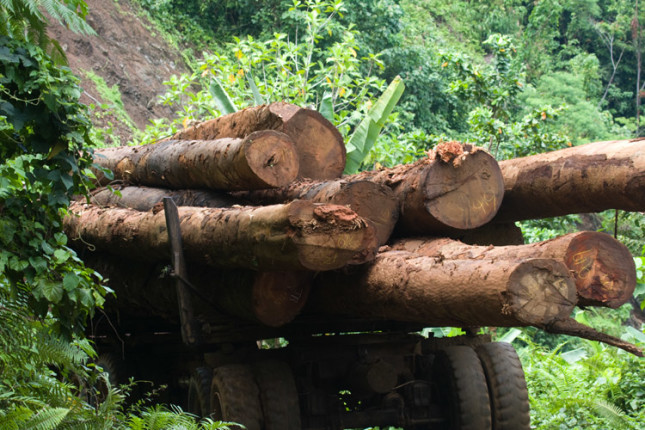
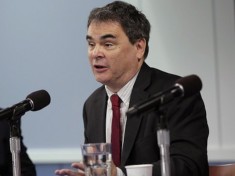 “When we start talking about water in the context of security, we’re immediately drawn to a conversation about conflict. And that’s often framed in terms of scarcity of water and a real zero-sum game around water, where scarcity begets grievances, which beget instability and conflict,” says Ken Conca, Professor at American University’s School of International Service, in this week’s Water Stories podcast. Of the world’s 276 transboundary water basins, fewer than half are governed by an agreement or accord that allocates use of the shared water between countries—and less than a quarter of these accords include all the riparian states in a basin.
“When we start talking about water in the context of security, we’re immediately drawn to a conversation about conflict. And that’s often framed in terms of scarcity of water and a real zero-sum game around water, where scarcity begets grievances, which beget instability and conflict,” says Ken Conca, Professor at American University’s School of International Service, in this week’s Water Stories podcast. Of the world’s 276 transboundary water basins, fewer than half are governed by an agreement or accord that allocates use of the shared water between countries—and less than a quarter of these accords include all the riparian states in a basin.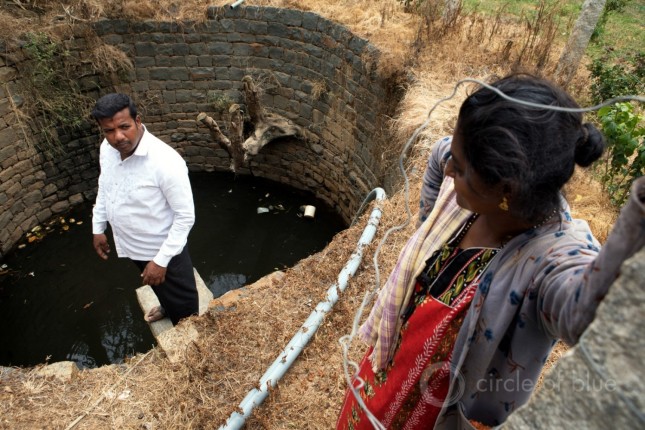
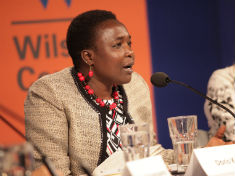 “You cannot separate water and health,” says Doris Kaberia in this week’s Water Stories podcast. “People need safe drinking water for them to be healthy.” Kaberia works with Millennium Water Alliance, a coalition of international NGOs working on water sanitation and hygiene around the world, where she manages a Kenyan water program.
“You cannot separate water and health,” says Doris Kaberia in this week’s Water Stories podcast. “People need safe drinking water for them to be healthy.” Kaberia works with Millennium Water Alliance, a coalition of international NGOs working on water sanitation and hygiene around the world, where she manages a Kenyan water program.